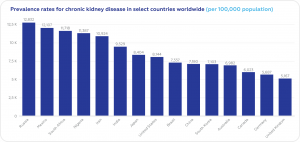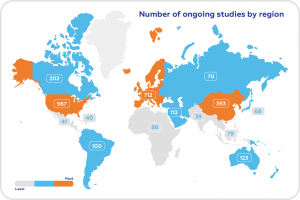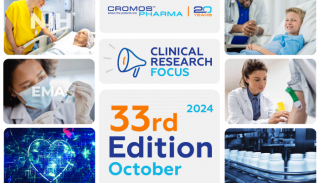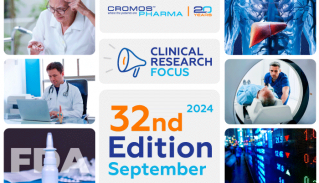
World Kidney Day 2023
World Kidney Day is an annual global campaign observed on the second Thursday in March to raise awareness about the importance of kidney health and the impact of kidney disease on people’s lives. It was first observed in 2006 and has since become a global health awareness event.
The campaign focuses on educating people about the vital role that kidneys play in maintaining overall health and well-being. It also seeks to raise awareness about the risk factors that can lead to kidney disease, such as diabetes, high blood pressure, and obesity, among others.
Each year, World Kidney Day has a different theme, and various events, activities, and campaigns are organized around the world to raise awareness about kidney health and disease prevention. The 2023 campaign is focused on raising awareness about natural or man-made harmful events and their impact on individuals with kidney disease whose access to right diagnostics and treatment is impeded.
TOP 5 Kidney Disease Treatment Trends
Home Dialysis
Home dialysis is a type of treatment for kidney disease that allows patients to receive dialysis treatment in the comfort of their own homes instead of going to a dialysis center. There are two main types of home dialysis: peritoneal dialysis (PD) and home hemodialysis (HHD).
Peritoneal dialysis involves using the patient’s own abdominal lining, called the peritoneum, to filter waste and excess fluid from the blood. Home hemodialysis involves using a machine to filter waste and excess fluid from the blood, similar to in-center hemodialysis.
Artificial Intelligence
Artificial Intelligence (AI) has the potential to revolutionize the diagnosis and treatment of kidney disease. AI can analyze large amounts of medical data to identify patterns and predict the risk of developing kidney disease. This can help identify patients who are at high risk of developing kidney disease at the early stage.
AI can help predict the progression of kidney disease and possible complications. AI is also useful in the personalization of treatment plans for patients, basing on their individual health conditions.
Immersive technology
Immersive technology, which includes virtual reality (VR) and augmented reality (AR), can be utilized in various ways to assist with the diagnosis, treatment, and management of kidney diseases. Such technologies can help students practice different procedures, including kidney transplantation.
AR technology can also be used to provide real-time guidance during procedures. For example, an AR headset can display a 3D model of a patient’s kidney, highlighting the precise location of a tumor or other abnormality during surgery.
Advanced Renal Testing
Advanced renal testing refers to a set of diagnostic tests and procedures that are used to evaluate the functioning of the kidneys and detect any abnormalities in their structure or function. These tests are often ordered by doctors to diagnose and monitor conditions such as chronic kidney disease (CKD), acute kidney injury (AKI), and other kidney-related disorders.
The most commonly used tests are:
- Glomerular Filtration Rate (GFR) testing, that evaluates how well the kidneys are filtering blood;
- Blood Urea Nitrogen (BUN) Testing, that measures the amount of urea nitrogen in the blood, which can be an indicator of kidney function;
- Urinalysis, that involves analyzing a urine sample to look for the presence of abnormal substances etc.
Genomic Engineering
One example of genomic engineering for kidney disease is the use of CRISPR-Cas9 gene editing to correct mutations in the genes responsible for inherited forms of kidney disease, such as autosomal dominant polycystic kidney disease (ADPKD).
Another approach is to use gene therapy to introduce healthy copies of a gene into kidney cells that are deficient in that gene. For example, in Alport syndrome, a rare genetic disorder that affects the kidneys, the COL4A5 gene is mutated, leading to the production of a defective protein that is essential for the function of the kidney’s filtration system. Gene therapy could be used to introduce a healthy copy of the COL4A5 gene into kidney cells, potentially restoring normal kidney function.
Kidney Diseases Statistics
Worldwide, the chronic kidney disease (CKD) prevalence is about 13.4%. 38% of people over the age of 65 have this disease. In the United States chronic kidney disease affects more than 1 in 7 adults (37 million people). Nearly 1 in 3 people with diabetes and 1 in 5 people with high blood pressure have kidney disease. It is important to note that 9 in 10 people who have CKD are not aware they have the disease.

Clinical Trials in Kidney Diseases
Studies of renal diseases are not as numerous as studies in other therapeutic areas. Every year, more people are diagnosed with kidney disease than with cancer. In 2020, there was only one late-stage renal study for 39 cancer studies. This difference is disproportional to the prevalence of these diseases in the population. Moreover, the National Institutes of Health (NIH) provided 10 times more funding for cancer than for kidney disease. There are many reasons for this divergence, including the fact that the multiple comorbidities that affect patients with renal disease make investigations extremely complicated. Furthermore, kidney disease affects so many physiological systems that researchers hesitate to include these patients for fear of adverse effects.
In addition to a lack of nephrology research, there is little public demand and urgency to develop new kidney-related therapies because many patients will succumb because of associated comorbidities, like cardiovascular disease, before they even know they have kidney problems.
There are now 2391 ongoing clinical trials in kidney diseases according to Clinicaltrials.gov. (recruiting, not yet recruiting, and active, not recruiting).
Most trials are being conducted in the United States and Europe. A large number of trials is also conducted in East Asia.

While renal research faces challenges, we would like to emphasize how important it is to conduct more research in order to improve the lives of people with kidney diseases.
Cromos Pharma has extensive experience in managing all aspects of kidney disease trials, in all phases, including rescue, post-marketing and observational studies. Nephrology trials represent a substantial part of the company’s research portfolio.






























